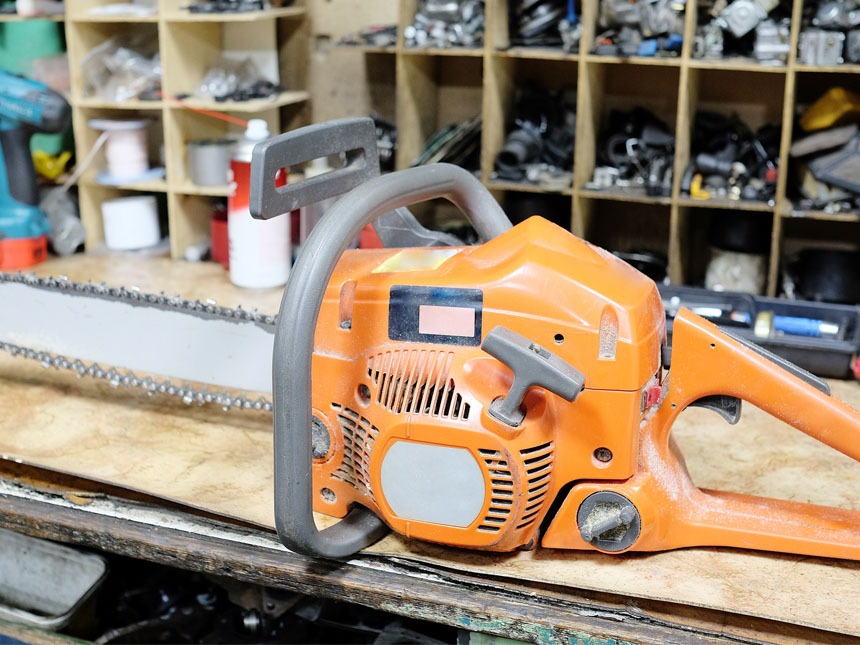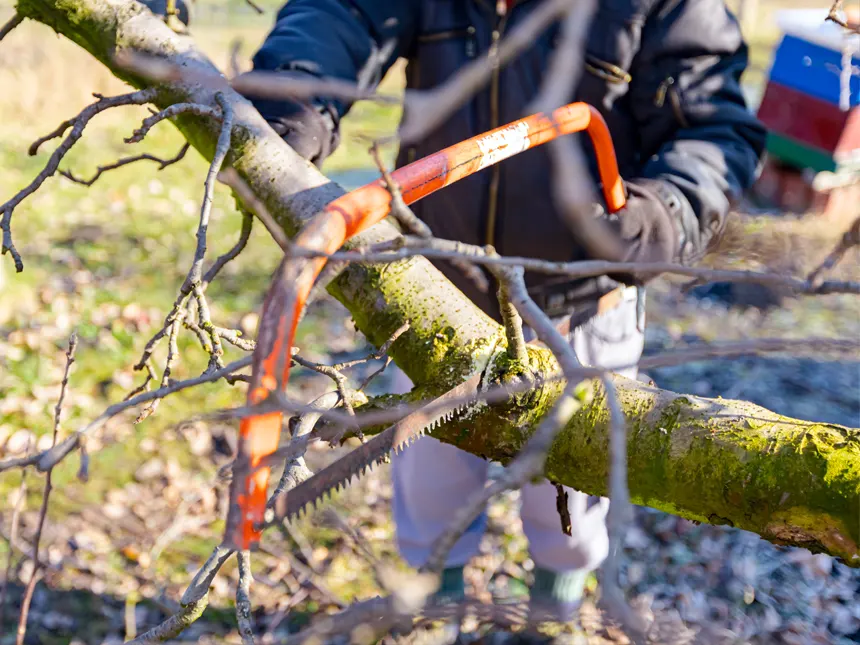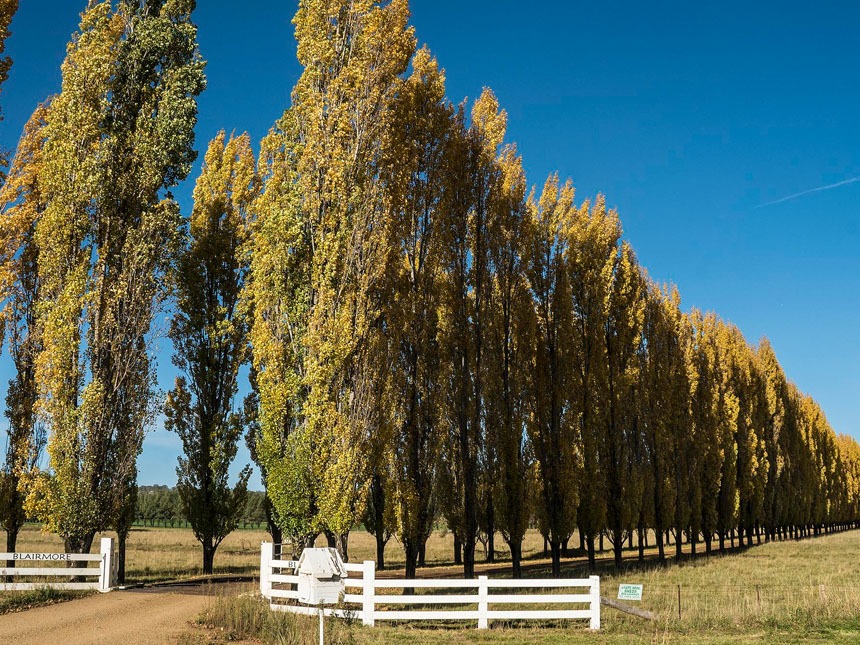Electric vs. Gas Chainsaw: Which Is Better?
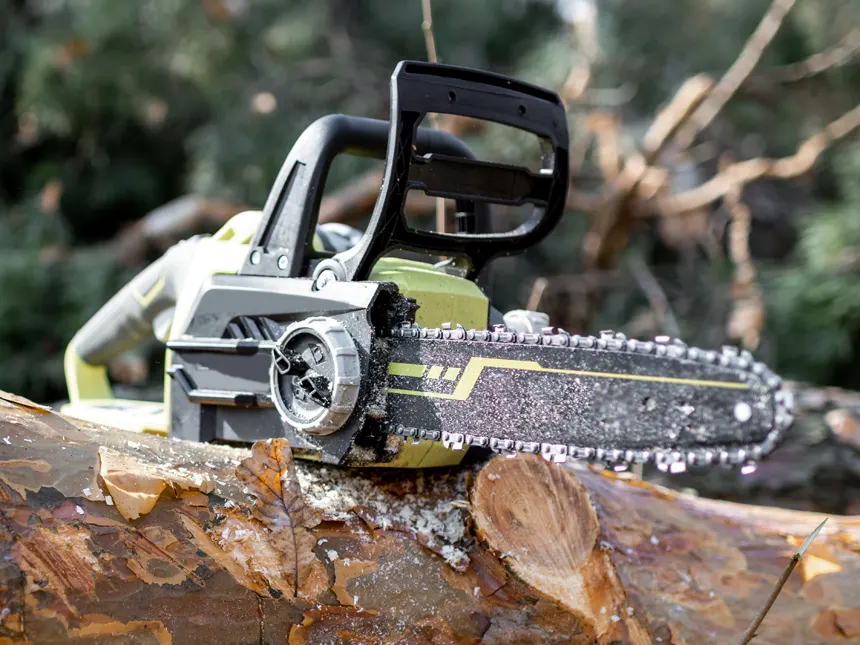
Timber Gadgets is reader-supported. We may earn a commission if you buy through the links on our site.
Advancements in technology have rendered electric-powered chainsaws a worthy option for homeowners. Meanwhile, gas-powered chainsaws are strong and reliable. That begs the question, which is better?
While both options have pros and cons, electric chainsaws cannot compete with professional-level, gas-powered chainsaws. The better question to ask is this: Which one is best for me?
What if you’re not an arborist or cutting trees for a living? Will an electric chainsaw suffice for work around the yard? The answer is “yes.” This post will compare the pros and cons of electric and gas chainsaws to help you decide which is best for you.
Table of Contents
Gas Chainsaw Pros & Cons
Listed below are some pros and cons of using a gas-powered chainsaw.
Pros
- Faster Cutting / More Power – A high chain speed allows you to cut more wood faster.
- Work Anywhere – You can work in nearly any environment except indoors.
- Most Choices – Many options concerning the size of the engine and bar length.
Cons
- Fuel/Oil Mixture – They require a special fuel-to-oil mixture.
- Starting – Getting it can be frustrating as it requires several steps.
- Fumes / Noise – They’re very loud and create fumes, which is not ideal in neighborhoods.
- Maintenance – There is more upkeep that goes into a gas-powered chainsaw.
- Weight – They generally weigh more than their electric counterparts.
Something I didn’t list was the prices. Gas-powered chainsaws are typically more expensive, especially when looking for professional-level chainsaws.
As we’ve already established, if you need a professional-grade chainsaw – it will be gas-powered. For all other chainsaws, the prices can be quite comparable. Let’s start by looking at the pros and cons of electric chainsaws.
Electric Chainsaw Pros & Cons
Listed below are some pros and cons of using an electric-powered chainsaw.
Pros
- Easy to Start – Turn it on and press a button/hold a trigger, and it runs.
- No Fuel – Simply charge the batteries and go.
- Quite / No Fumes – No fumes because it’s not a gas engine, and they make much less noise.
- Lightweight – Typically weighs less than a gas chainsaw.
- Less Maintenance – There are no filters or spark plugs to change.
Cons
- Sower Cutting / Less Power – Although the speed gap is decreasing, they still cut slower than gas chainsaws.
- Fewer Choices – There aren’t as many options as far as bar length.
- Batteries / Cords – You may require multiple battery packs to finish the job, or you’ll deal with a long cord.
I should note that not all electric chainsaws are battery-powered. Until recently, most electric chainsaws had to be plugged into a GFCI outlet.
Those are still an option but less common. Nowadays, you’ll likely purchase an electric chainsaw that runs off one or two battery packs.
In this case, it may take multiple batteries to finish the job you’re working on. Consider this as an extra cost associated with electric chainsaws. Otherwise, you might have to stop working to wait for your batteries to recharge.
Related:
Which Is Better?
The answer to this question is subjective depending on your circumstances. A gas-powered chainsaw is simply more powerful than the average electric chainsaw.
Having said that, an electric chainsaw will suffice for most yard work. If you’re not an arborist or cutting stacks of firewood to heat your house for the winter, you should strongly consider an electric chainsaw.
In my personal opinion, an electric chainsaw has far more pros than cons.
- Who Gas Chainsaws Are For – These are the biggest and most powerful chainsaws. They have engine sizes ranging from 30cc to 50cc+ and bar lengths over 18″. If you’re cutting ricks of firewood to heat your home for the winter, get a gas-powered chainsaw. Also, if you’re using a chainsaw for yard work and prefer gas-powered machines, get one. There are small gas chainsaws that work perfectly for this too.
- Who Electric Chainsaws Are For – These are for people who need a chainsaw for the occasional work. You might fell a small tree once in a while, trim some branches, etc. Electric chainsaws are very cool. They’re simple to start, quiet, don’t create fumes, and they’re more than adequate for the majority of yard work.
My Experience with Gas vs. Electric
In this section, I’ll tell you how I helped my parents clear some trees from my grandpa’s place. We used two chainsaws; one gas and one electric.
The gas chainsaw performed as you might expect. It started up, performed well, and didn’t slow down until we did. It ran out of gas once, and we needed a new chain as well. Other than that, it did great! This is what you can expect from a decent gas-powered chainsaw.
My mom recently bought a 20v cordless Craftsman (electric) chainsaw. She used it to trim branches and fell small trees (less than 6″ in diameter). I thought it looked neat, and when the opportunity presented itself, I gave it a try.
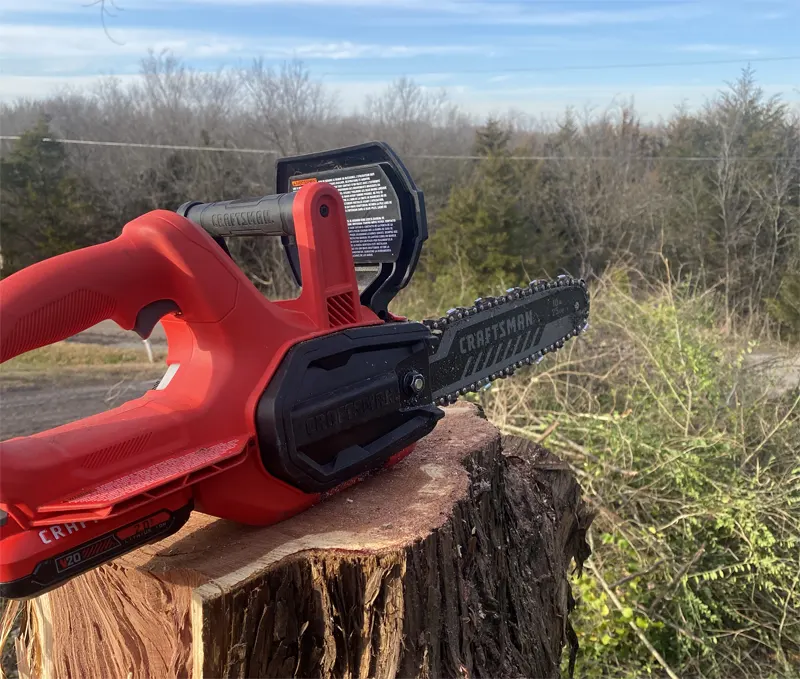
I was surprised at the power. For a small, electric chainsaw, it did a great job. It’s lightweight and easy to use. Simple to start and fairly safe – having a decent handle and chain brake. There were no fumes, and it was quiet.
I used it to cut small limbs from around an old cedar. There was a bunch of brush which made it difficult to get to. Along the way, I used her Craftsman to fell small trees. It was fun. Not as fun as a gas chainsaw, of course, but still fun.
When the battery died, it died fast. The chainsaw didn’t begin slowing down as the battery depleted. It seemingly runs full speed until its battery is too low – at which point it simply stops working.
If we had another battery, I would have gladly kept going. Unfortunately, we did not.
I enjoy using electric chainsaws and highly recommend them to most people. You can fell small trees, trim branches, and even cut firewood. If, however, you will be using the chainsaw a lot – cutting ricks of firewood, for example – A gas-powered chainsaw is more suitable for you.
Engine & Bar Guide
Now that you have a better idea of what type of chainsaw you need, I’ll finish this guide by talking about engine size and guide bar length.
Chainsaws have two main parts, the engine (power head) and guide bar (cutting system).
- Power Head – The gas or electric-powered engine that runs the chainsaw.
- Cutting system – The guide bar and chain.
Both the engine and guide bar comes in different sizes. Hence the reason for this section. The table below shows the recommended engine size and bar length for common tasks.
| Task | Gas Engine | Electric | Bar Length |
|---|---|---|---|
| Pruning / Trimming | 30cc | Small | >= 12″ |
| Limbing | 30cc | Small | 12″ – 14″ |
| Felling Small Trees | 30 – 40cc | Medium | 12″ – 14″ |
| Firewood (10″ diameter) | 35 – 45cc | Large | 14″ – 16″ |
| Firewood (16″ diameter) | 45cc | Large | 16″ – 18″ |
| Felling Medium Trees | 45cc | Large | 16″ – 18″ |
| Firewood (24″ diameter) | 50cc+ | <= 18″ |
The table above should help you in selecting the correct size chainsaw, whether gas or electric. Featured photo by rh2010 / Adobe Stock.
TLDR; Gas or Electric Chainsaw?
Both gas and electric chainsaws have their pros and cons. Mostly, a gas-powered chainsaw will outperform an electric chainsaw in the cutting department. They’re simply stronger.
Having said that, electric chainsaws are powerful too. They will saw through almost anything their gas counterparts will. Because they’re easier to start, weigh less, don’t produce exhaust (fumes), and are not as loud, I recommend an electric chainsaw for most people with light to medium work.
If you’re the type of person who wants to use a chainsaw to trim the dead limbs off a tree, fell some small trees, or cut small logs for firewood, an electric chainsaw is great.
However, I recommend a gas-powered chainsaw for anyone felling large trees or cutting ricks of firewood to heat their homes over winter.

